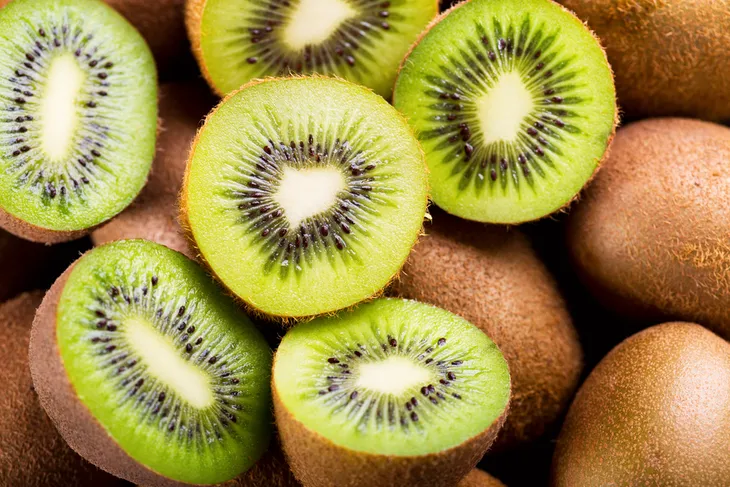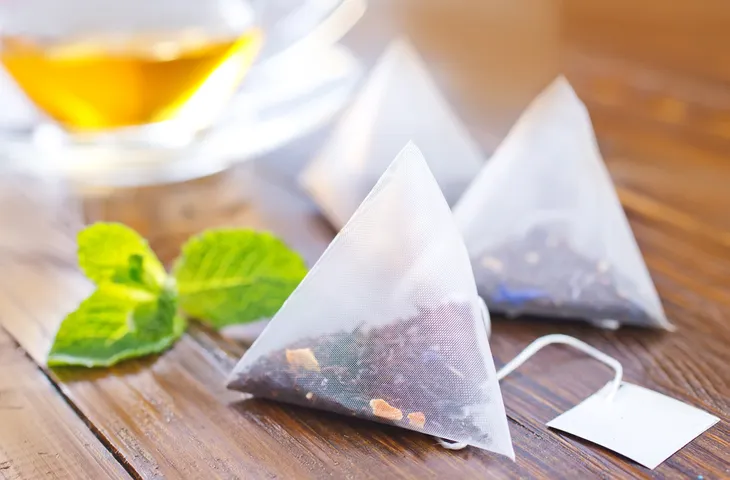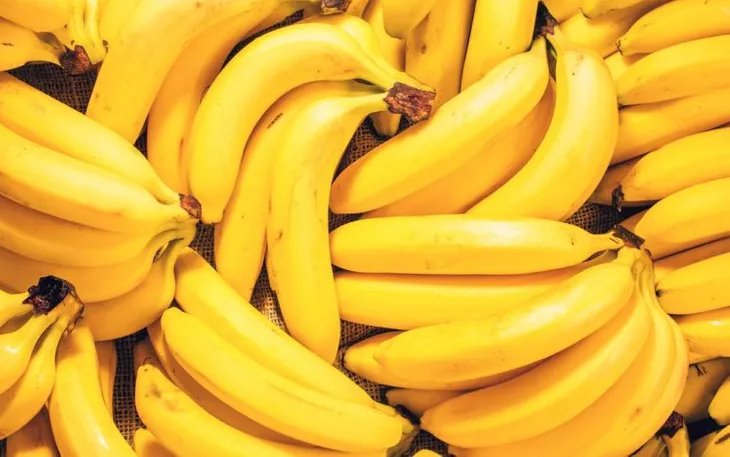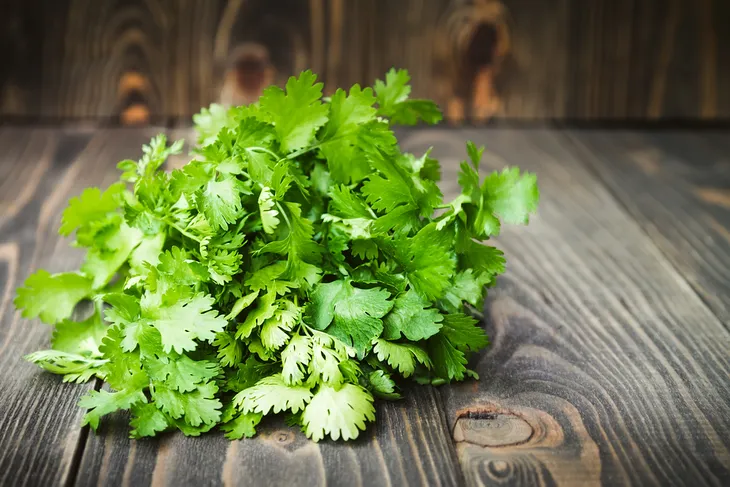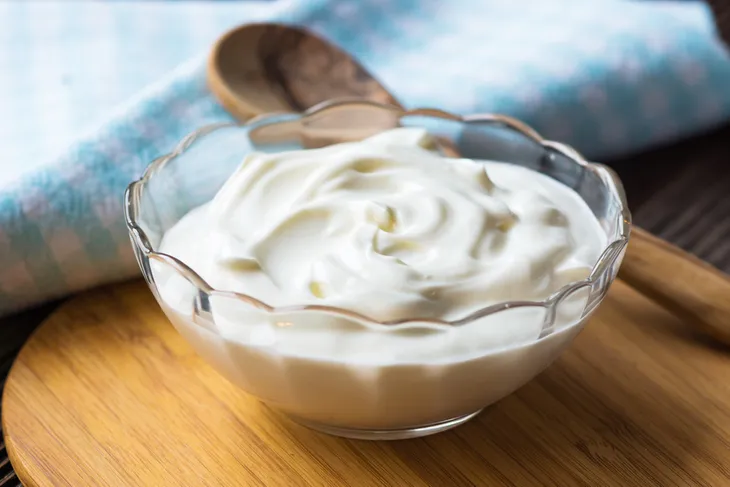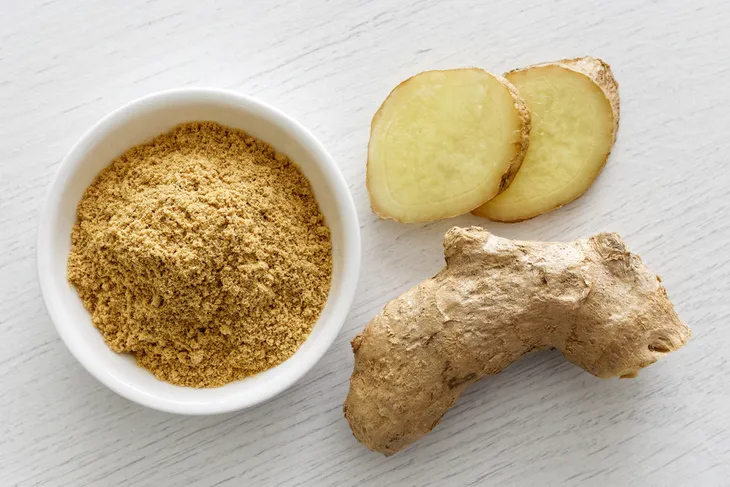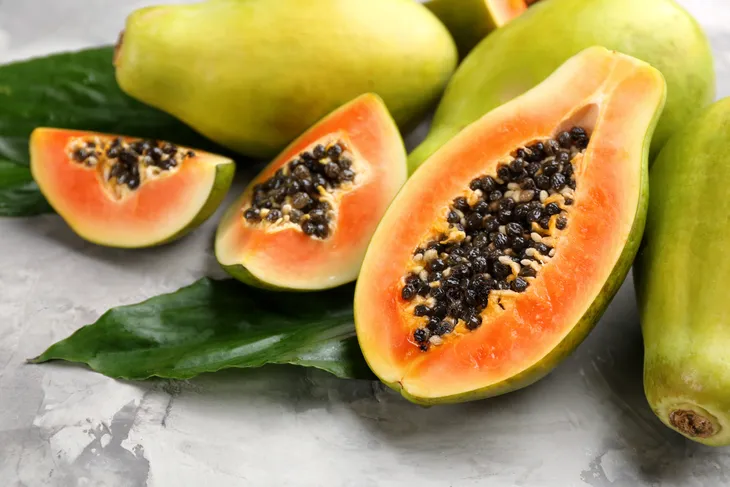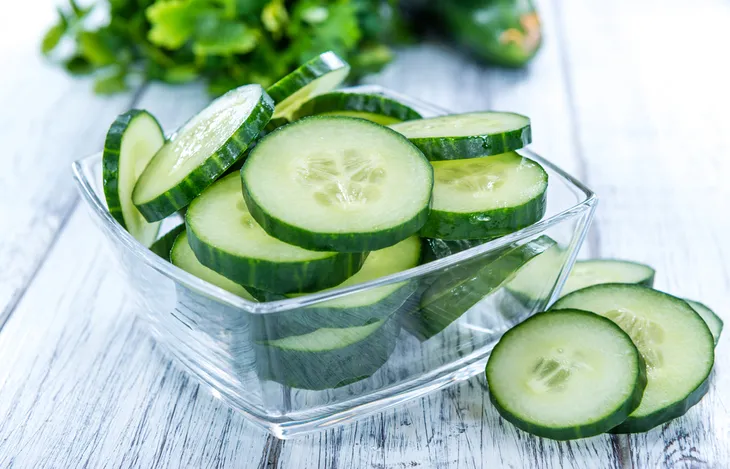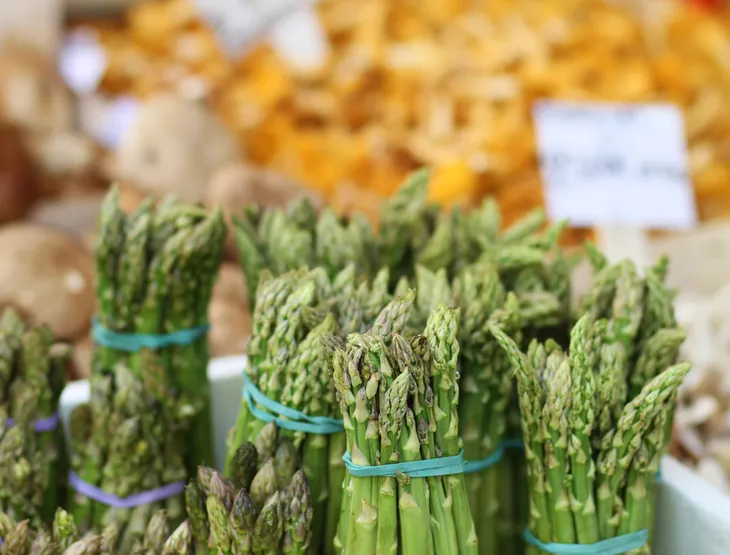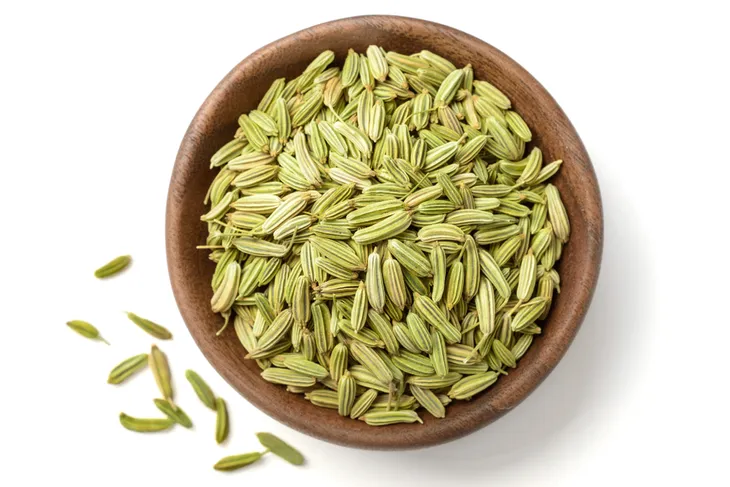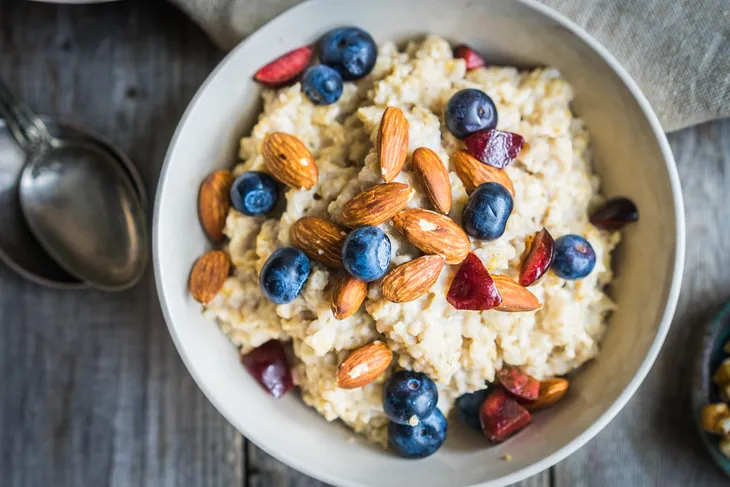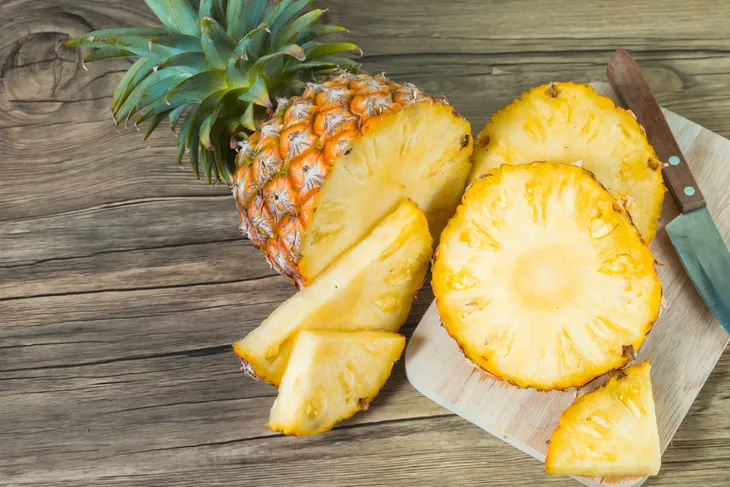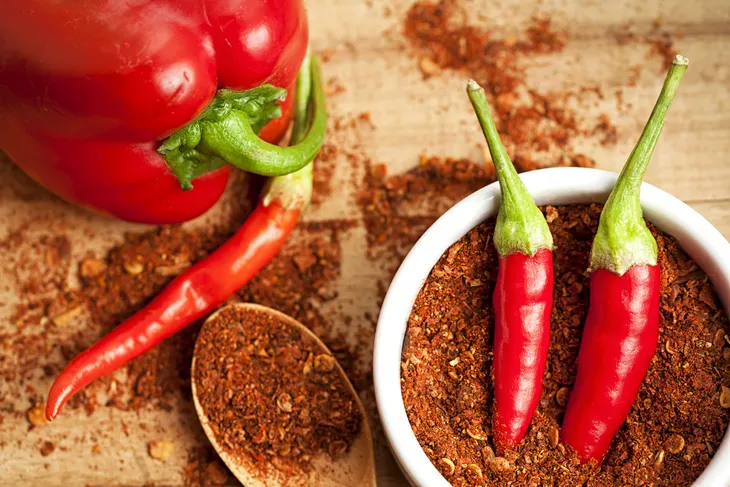Bloating: that uncomfortable pants-are-too-tight feeling many people experience after overeating at Thanksgiving and Christmas dinner. For some, however, this discomfort occurs on a daily basis.
The most common causes of bloating include excessive food consumption, eating foods that are rich in fat, or a build up of gas in the abdomen that happens as a result of chewing gum or drinking carbonated beverages—leading to pain and swelling in the abdomen. Thankfully, these 15 foods contain natural properties that can provide the digestive system with relief.
Kiwi
More than just a pretty fruit, kiwi is high in fiber, which helps to relieve bloating by moving the irritant through the digestive system faster. Kiwi also contains an enzyme called actinidin, which has been found to aid in the digestion of red meat and dairy products—foods that commonly contribute to bloating.
Kiwi may be particularly beneficial for people that suffer from irritable bowel syndrome (IBS), as a recent study conducted in Pacific Asia has found that those who ate two kiwi a day for four consecutive weeks experienced fewer symptoms.
Peppermint Tea & Chamomile Tea
Peppermint tea has been a popular remedy for stomach pain and indigestion for many thousands of years. It contains an active ingredient called menthol, which LiveStrong says is effective at eliminating bloat as it relaxes the stomach muscles, allowing the body to release pent up gas.
Chamomile tea is also beneficial for relieving abdominal discomfort. A natural anti-inflammatory and carminative herb, Reader’s Digest says it can help to relieve flatulence by “mildly sedating and soothing the mucous membrane of the digestive tract.”
Banana
A quick and easy snack food, eating a banana may be one of the most efficient ways to address bloating. Bloating isn’t always gas-related; in some cases it may be the result of high sodium intake. That’s where bananas come in—or, more specifically, the potassium in bananas. According to Health.com, this mineral can “prevent water retention by regulating sodium levels in your body and can thus reduce salt-induced bloating.”
Bananas aren’t the only potassium-rich foods that can banish bloating, though. The source adds that avocados, oranges and pistachios can also be beneficial.
Cilantro
Cilantro is quite a controversial herb; while some people love it, others find that it does not agree with their taste buds. In addition to using it for cooking, those who are fans of cilantro will be able to take advantage of its bloat-busting properties.
The enzymes, phytonutrients and oils it contains—such as linalool and geranyl acetate—offer a natural remedy for relaxing the muscles of the digestive system to relieve discomfort.
Yogurt
Yogurt is packed with gut-friendly bacteria called probiotics, which, according to Women’s Health, help the gastrointestinal system to digest and absorb food, preventing bloat.
While it may be tempting to reach for the flavored varieties, sugar is a common trigger of bloating, so be sure to stick to the plain, low-fat options. If a bit of sweetening is needed, top the bowl of yogurt with fresh fruit.
Ginger
Since ancient times, ginger has been used as a natural remedy for many ailments—including bloating. A carminative herb, ginger is effective at “helping to alleviate gas, bloating and cramps,” says LiveStrong.
Its active ingredients, such as gingerol and shogaol, help to calm the digestive tract and relieve gas build up. The source also says that ginger is an effective pain reliever, aiding discomfort or pain in the abdomen.
Melon
Let’s be honest, they don’t call it watermelon for no reason. A whopping 92 percent of it is H2O, making the fruit a natural diuretic that flushes out excess water and salt that cause bloating. It is a rich source of potassium as well, which also aids in ridding the body of unneeded sodium.
The same goes for other melons such as honeydew and cantaloupe, as well as cucumber, all of which are part of the same family and each contain more than 90 percent water.
Papaya
Although it’s not the easiest fruit to come by, papaya has many digestive-aiding properties—such as the enzyme papain, which helps to break down protein that might otherwise cause bloating. Papaya also contains fiber and anti-inflammatory properties that help to maintain a strong gastrointestinal tract.
Another tropical fruit, pineapple is also beneficial for alleviating bloating. It contains an enzyme called bromelain, which, like papain, helps to digest proteins that can lead to bloating.
Cucumber
Cynthia Sass, MPH, RD, a contributing nutrition editor at Health.com, says there’s a reason cucumbers are often placed on our eyes to reduce puffiness. This fresh vegetable contains “quercetin, a flavonoid antioxidant” which works to reduce swelling. The best part? Not only does it work on our skin, it has the same effect in our stomach! “Cucumbers have been shown to inhibit the activity of pro-inflammatory enzymes,” says Sass.
Redbook magazine also notes that cucumbers have very few calories because they’re mostly made of water. “[Their] natural diuretics, meaning they help flush out excess water weight,” says the source.
Asparagus
While asparagus might not be everyone’s favorite vegetable, it does have a lot of great health benefits. Not only is it easy to whip up as a healthy side dish to any meal, it also contains potassium, which according to Redbook magazine, “helps to remove excess fluids from your body.”
Health.com also backs this claim up by stating that asparagus contains prebiotics “which support the growth of ‘good’ bacteria.” Keeping the bacteria in our gut balanced is super important and keeps our digestive system balanced. It also reduces and prevents gas. To top it all off, this green veggie contains soluble and insoluble fibers which also promote good digestive health.
Fennel Seeds
Fennel seeds have been used in cooking to add flavor for thousands of years, mostly in Eastern India. Similar to ginger, these seeds are commonly used as a remedy for gas and bloating. People will chew these seeds after a big meal to help ease the symptoms of indigestion. “The compounds anethole, fenchone, and estragole in fennel seeds have antispasmodic and anti-inflammatory properties that relax intestinal muscle and allow trapped gas to dissipate” says Tara Coleman, a clinical nutritionist in San Diego, to Women’s Health magazine.
While these seeds are safe when used in small amounts for cooking, LiveStrong notes that the medicinal use of fennel seeds isn’t advised for everyone. Please check with your doctor before taking them as a supplement.
Oatmeal
It’s important to note that there hasn’t been any direct relation drawn between oatmeal and bloating, but Diane Blahut, a clinical dietitian at Johns Hopkins Nutrition Clinic in Baltimore told Her Campus that the high fiber in oatmeal could offer up a solution to constipation and gas which contribute to bloating. “[It’s] high in soluble fiber. Fiber does help maintain bowel regularity, and avoiding constipation is one way to avoid bloating,” said Blahut.
Pineapple
This sweet and juicy fruit has a high water content which makes it great for battling bloat. Not only is it bright and delicious to eat, its unique combination of enzymes helps to flush out our digestive system.
“[Pineapple] contains an enzyme called bromelain which helps digest proteins. It is theorized that bromelain decreases inflammation and can help reduce bloating, but to my knowledge there is little actual scientific research into the specific topic. Pineapples also contain potassium, which helps combat water retention caused by eating foods high in salt,” said Blahut.
Drink Lots of Water
You’d think drinking lots of water would actually cause bloating rather than cure it, but drinking enough water on a daily basis is one of the best things you can do for your body. Everyday Health notes that several glasses of water a day will help keep the sodium in your body balanced. It also helps fight constipation by flushing out your system and keeping the digestive tract moving. In addition to drinking several glasses of water a day, Everyday Health advises against drinking soda, or any other carbonated beverage.
Find it hard to drink plain water? Make it a little more interesting (and healthy) by adding a few slices of lemon. “The atomic composition of lemon juice is very comparable to our stomach’s digestive juice, as well as saliva and bile, so it actually helps relieve symptoms of indigestion such as bloating and belching,” says Tara Coleman, a clinical nutritionist in San Diego.
Cayenne Pepper
Do you like spicy food? If so, this is the perfect remedy for you! Kristin Kirkpatrick, R.D., wellness manager at the Cleveland Clinic Wellness Institute told Women’s Health that spicy foods can help relieve a bloated abdomen.
“The capsaicin in cayenne pepper reduces gas and bloating because it increases the flow of digestive enzymes through your intestines,” says Kirkpatrick. In addition to promoting good digestive flow, the capsaicin also fights bloat by killing off the bad bacteria in our belly that causes bloating and gas.

